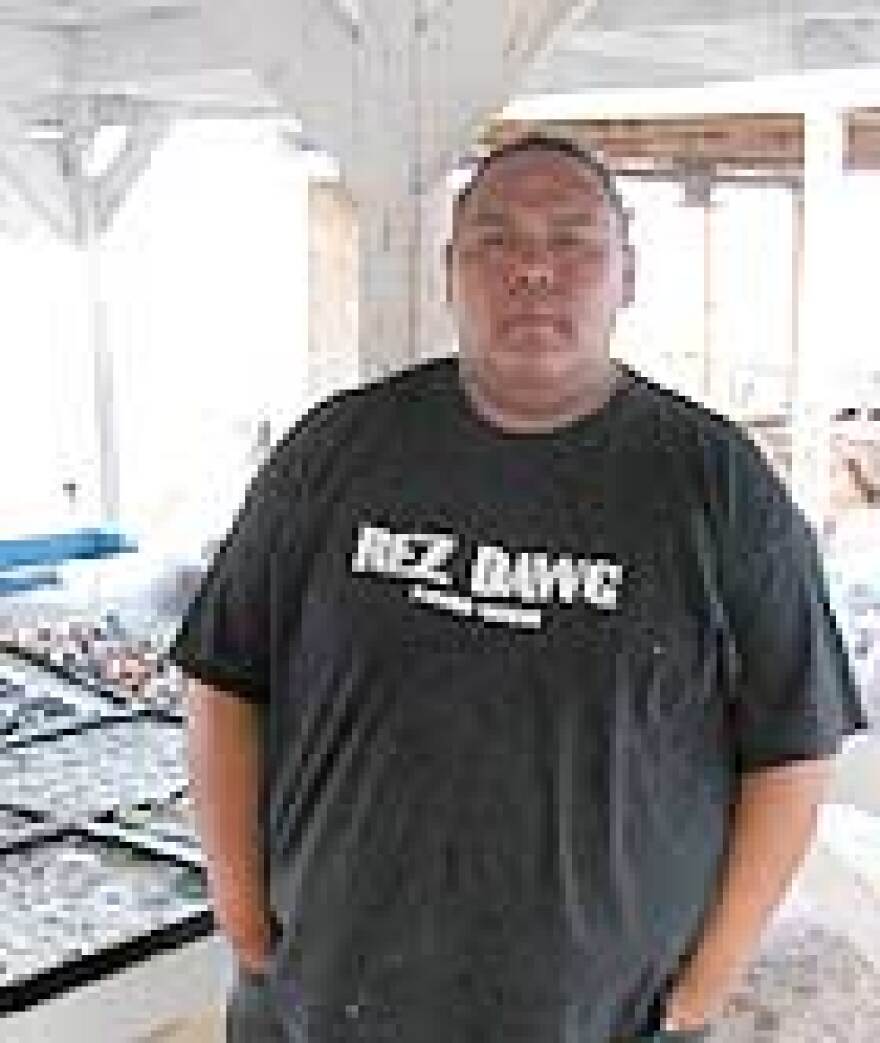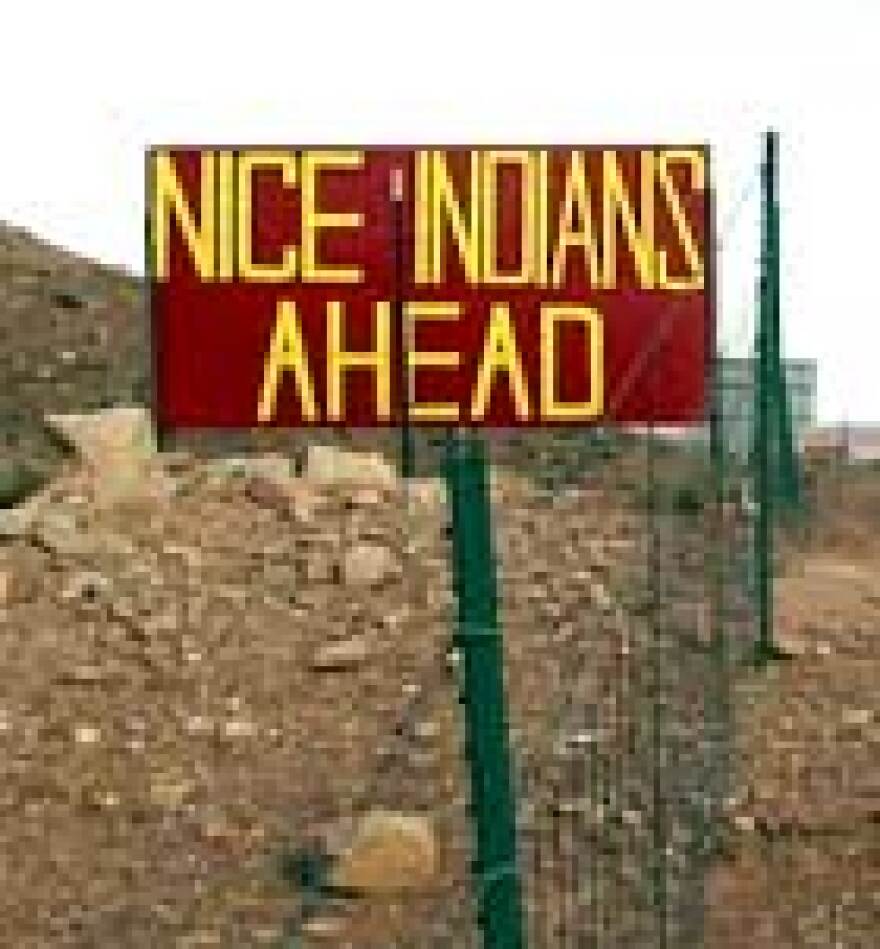

By the end of this summer, over 2 million people are expected to visit the Grand Canyon in Arizona. On a recent assignment in that state, NPR's Tom Goldman decided to make his first visit. But before he even arrived at the Grand Canyon, Goldman found a roadside attraction that was impossible to ignore.
Highway 64, the route most tourists take to the Grand Canyon, is lined with stands selling Native American arts and crafts: blankets, beads, necklaces. But Goldman wasn't compelled to stop until he came across a sign that read "Nice Indians Ahead."
"Before I could do a double-take, I zoomed past the stand," Goldman says. "The proprietors obviously thought this out, because a little farther down the road, there was another sign: 'Nice Indians Behind You.'"
Goldman found the signs both intriguing and disturbing: "After all, doesn't a sign reading 'Nice Indians Ahead' imply that many of the people zipping along Highway 64 must think most Indians are not nice?"
According to Curtis Coleman, the 19-year-old Navajo running the stand advertised by the signs, common misperceptions about Native Americans did factor into the creation of the signs.
"Native American are labeled mean and killing machines in a way, like in war movies, old westerns, that we would scalp you any chance we had," Coleman says. "And so the signs are here just to tell you that we're friendly, we like to talk to people and everything."
Goldman says the signs didn't lie: He found Coleman to be very friendly -- even to those shoppers who simply stopped to browse, not buy.
Copyright 2022 NPR. To see more, visit https://www.npr.org.


